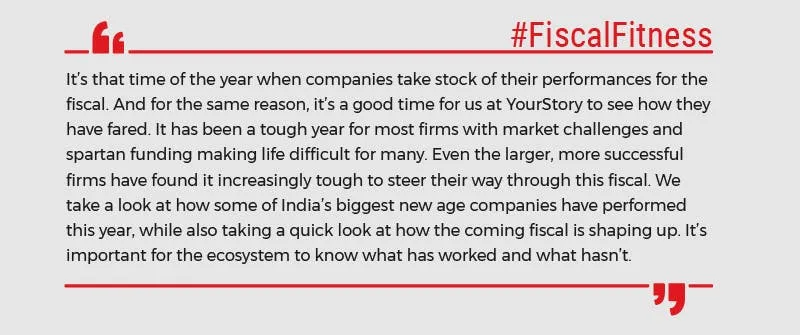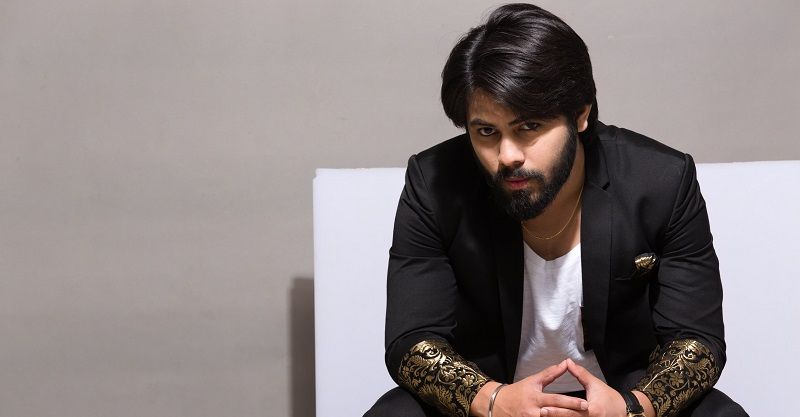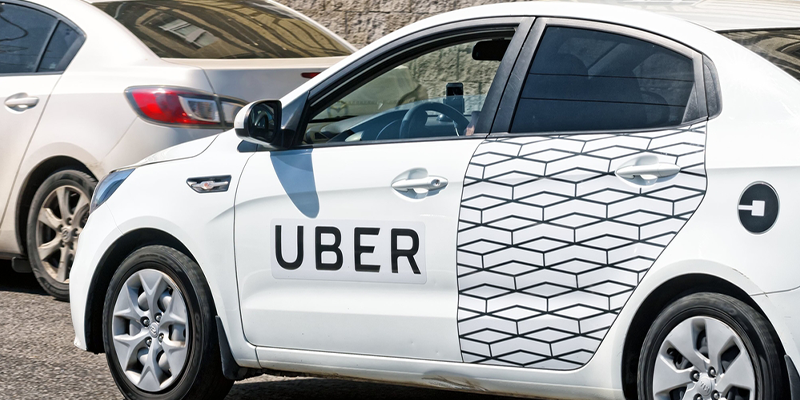Byju's plans deeper inroads into India, bets on Rs 1,300 crore revenue for FY19

Founded by Byju Raveendran, Byju’s has created deep knowledge graphs of over 60,000 concepts and relationships to design personal learning journeys for at least 25 million students.
When you think of Byju Raveendran, you think of him as a visionary businessman. But, first and foremost, he’s a teacher, a teacher who thinks big.
The numbers show that his Bengaluru-based edtech and online tutoring company, Byju's, is growing significantly. According to ROC data, its revenue in FY2017 was Rs 247 crore and it made losses of Rs 59 crore. According to Byju's, the company will end this financial year (2017-18) at around Rs 520 crore in revenues.
In the digital economy, scale comes first and then comes the accounting dynamics. How is Byju's growing so fast - at 100 percent? This can be attributed to the fact that the present renewal rate from subscribers is 85 percent and the addition of new students continues at a fast pace.
No wonder Byju's wants to double its revenue to anywhere between Rs 1,200 crore and Rs 1,300 crore in FY19. This makes the company, which is funded by Tencent and Sequoia, among many other investors, a very valuable business indeed. The company has raised $244 million.

Betting on technology
At its heart, Byju's is a tech company. In 2017 they launched the K-5 (Grade 4-5) product along with the “Parent Connect” app. In the K-5 app, experiential learning is driven by games. Each student is different and is guided differently on the learning journey.
Byju Raveendran, the Founder of Byju's, says: “A combination of gamification techniques in learning ensures that students stay motivated. Gamification directs a student's learning interactions, offers a sense of progress and achievement, and further drives engagement. In fact, gamification for younger audiences takes a different hue. It helps to maintain high levels of engagement as younger audiences have difficulty retaining focus.”
The Parent Connect app provides parents better understanding of their child’s learning progress and enables them to provide emotional and psychological support. Why is this app relevant? Generally, for parents, assessment is limited to test and examination reports.
“Through this app, we want parents to be an integral part of the student’s learning journey. They become participative, rather than authoritative. They have an in-depth understanding of how the child is improving and can celebrate little successes with them,” Byju says.
He adds that the company strongly believes that a little motivation from parents goes a long way for a child. Byju's has worked on customising learning experiences through personalised journeys and engaging teacher-student experiences. Teachers now have access to varied tools and technology to make learning more interesting and impactful for students. This adds a whole new dimension in the way teaching and learning takes place.
At Byju's, technology offers teachers a combination of tools, mediums, and interactive formats to deliver concepts in the most personalised format. For example, explaining “how sound waves are created” is very easy when a teacher explains the concept with the help of interactive tools made possible by technology. The movement of the string of a guitar can be shown to explain the concept contextually, while a slinky is used to show it visually. This ensures that a student is learning the concept in a way that s/he will never forget.
There have been several learnings over the last two years for Byju's and the company is betting on rising smartphone ownership, internet penetration, and development of infrastructure, which is driving the growth of mobile-based learning.
Betting on the future
Shreedhar Prasad, Partner at KPMG, says: “Children are taking to smartphone-based learning very fast in cities. According to us, children in the Grade 8 will take to the smartphone soon for complete learning, going forward.”
Byju's believes that children are learning their first alphabets and numbers from the screen on their own. It is also true that parents use tablets to teach their kids.
“We launched our 4th-5th math learning app last year and have seen great response from children. The use of characters and gamification has worked very well as it makes their learning journey highly engaging and interesting. Additionally, we have an overall rating of 4.7 and over 10 million downloads across categories, is a great indication of the fact that younger students love our app,” Byju says.
The backbone of Byju’s personalisation engine is the rich learning profile that is built for every student. This is powered by deep knowledge graphs of over 60,000 concepts and relationships that have been created to design personal learning journeys - videos, questions, adaptive flows, quizzes, flashcards, correctional learning videos etc.
The knowledge graphs are not mapped to the class the child is in; they are mapped to levels of knowledge, speed of grasping information and time spent on a concept, and the time spent on the test. The learning content is also tagged to multiple other properties and parameters. For example, when a student starts going through his or her learning journey, a rich learning profile is built for each student to personalise the experience. This enables Byju’s to customise the learning experience for students based on their strengths, weaknesses, and their specific learning gaps, pace, and needs.
That said, Byju’s is aware of the challenges ahead. The main challenge is changing the perception about how children should learn. The Byju belief or ethos is that students should take up the initiative of learning on their own, while parents should take up supporting roles. The company feels that the focus so far has been on spoon-feeding and rote memorisation, rather than encouraging children to learn on their own.
“They are getting trained to solve questions but aren’t being encouraged to find problems or ask questions. In India, learning is driven by the fear of exams rather than the love of learning. The current challenges can easily be addressed by using technology. To make a difference in the way children learn, it is extremely critical to help children learn better right from their formative years,” Byju says.
He adds that if they learn right from the start, they will become lifelong learners instead of learning just for examinations. It was for this that Byju's launched their K-12 app in 2015. Since then they claim to have become India’s largest K-12 app with 15 million registered students.
Byju strongly feels that online learning is not just offline learning taken online by simply digitising content; rather, it uses technology extensively to make learning better and more effective online. Only then can it be effective.
In the new financial year, Byju’s will focus on going deeper into India and further accelerating reach. The company is creating learning programmes in multiple local languages, which will help them to reach out to a wider set of students across regions.
No wonder Byju Raveendran is trotting the globe. He is convincing investors to buy into the India story and may have plans to go international!








![[Startup Bharat] How Malabar Angel Network is boosting North Kerala’s startup ecosystem](https://images.yourstory.com/cs/2/79900dd0d91311e8a16045a90309d734/MANBuilding1574227798889jpg)


